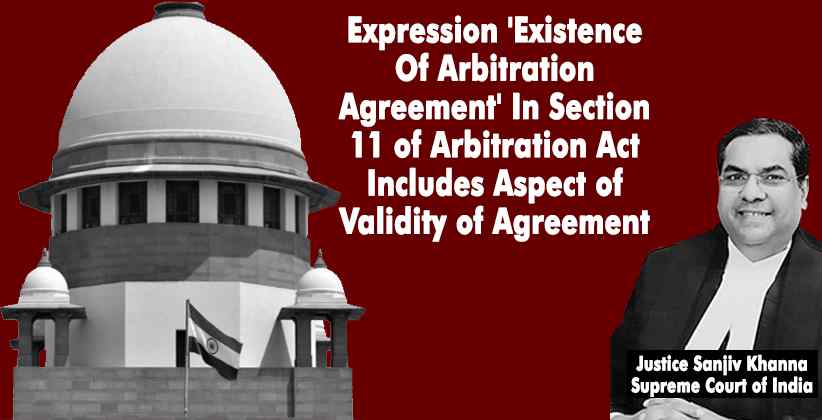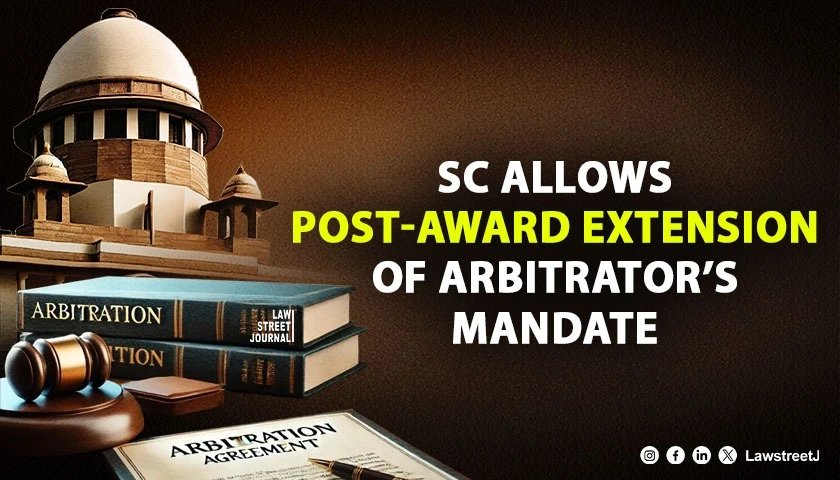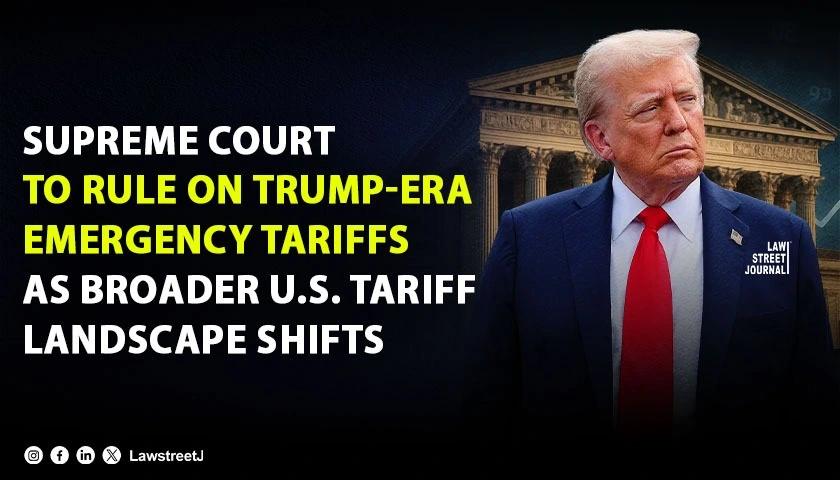The Supreme Court has held that the expression 'existence of arbitration agreement' in Section 11 of the Arbitration Act, 1996 would include the aspect of validity of arbitration agreement.
A three-judge bench of the Court also explained that at the stages of Sections 8 and 11 of the Act, the Courts should undertake a prima facie examination of the validity of the arbitration agreement.
Prima Facie examination under Section 8:
The Court noted that Section 8, after the 2016 amendment, enjoins the Court to undertake a prima facie examination as to the validity of the agreement.
The judgment of Justice Sanjiv Khanna explained the scope of prima facie examination as follows :Prima facie case in the context of Section 8 is not to be confused with the merits of the case put up by the parties which has to be established before the arbitral tribunal. It is restricted to the subject matter of the suit being prima facie arbitrable under a valid arbitration agreement.
'Existence of arbitration agreement' under Section 11
The judgment noted that sub-section 6A inserted in Section 11 as per 2016 amendment prescribed that the Court, at the stage of appointment of arbitrator, should confine itself to the examination of the existence of an arbitration agreement. This means that the 'existence of arbitration agreement' was meant to be a question to be decided at the stage of Section 11.
However, sub-section 6A was omitted after the 2019 amendment. But this omission was is in view of the introduction of a new regime of institutionalized arbitration. After the Amendment Act of 2019, Section 11 has been omitted because appointment of arbitrators is to be done institutionally, in which case the Supreme Court or the High Court under the old statutory regime are no longer required to appoint arbitrators and consequently to determine whether an arbitration agreement exists. Omission of sub-section by Act 33 of 2019 was with the specific object and purpose and is relatable to by substitution of sub-sections , and to Section 11 of the Arbitration Act by Act 33 of 2019, which, vide sub-section stipulates that the High Court and this court shall have the power to designate the arbitral institution.
Sections 8 and 11 of the Act have the same ambit with respect to judicial interference
Usually, subject matter arbitrability cannot be decided at the stage of Sections 8 or 11 of the Act, unless it's a clear case of deadwood.
Areasonable and just interpretation of 'existence' requiresunderstanding the context, the purpose and the relevant legalnorms applicable for a binding and enforceable arbitration agreements.
Only when the court is certain that no valid arbitration agreement exists or the disputes/subject matter are not arbitrable, the application under Section 8 would be rejected. Referral proceedings are preliminary and summary and not a mini trial. Accordingly, when it appears that prima facie review would be inconclusive, or on consideration inadequate as it requires detailed examination, the matter should be left for final determination by the arbitral tribunal selected by the parties by consent.
An agreement evidenced in writing has no meaning unless the parties can be compelled to adhere and abide by the terms.








